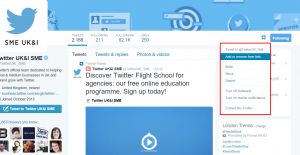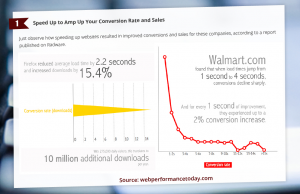I got an interesting email from a lead gen company. There was a fascinating line in the email:
“We just published a study at [Company Name] about how conversion rates on cold sales emails improve if you gratuitously mention a famous customer, investor, or shared LinkedIn contact.”
I was intrigued by this and called few people to check this out. After brief conversations with Donald Trump, Larry Ellison, Marc Benioff, Bill Gates, Sergey Brin, Jack Welch, Chuck Robbins, Mark Zuckerberg, Ginny Rometty, Carl Icahn, Larry Fink, Barack Obama, Tom Cruise, Jennifer Lawrence, Tom Hanks, Ellen DeGeneris, Kim Kardashian, Kanye West, Jay Z, Taylor Swift, Mark Cuban, and a few others, I came to some observations.
Yes, they are probably right. We have a great curiosity about famous people, we are curious about them, so celebrity catches our attention. So opens, reads, click throughs–things I guess this company would measure as “success,” work–but do they produce the desired results?
What happens when the target recognizes the “gratuitous use” of the celebrity name? When they recognize it as pure name dropping, when it’s viewed a gratuitous, what impact does it have on the reputation of the sender?
Does it increase their credibility, does it increase the propensity to buy, does it improve trust and confidence when the recipient recognizes this as a crass manipulation?
There are all sorts of manipulations that “boost” our numbers. Whether it’s the “gratuitous use” of a celebrity name, or making a caller think you are local when you may really be several states away (Callers are 25-38% more likely to answer the phone if CallerId displays a local number than an out of state number), tweets using my name but promoting something I don’t agree with, or any other great technique, these are all manipulations and deceptions.
They are based on an underlying assumption, “The customer is stupid.” They are too dumb or unobservant to recognize they are being manipulated.
I have to admit, I’ve fallen for these a few times (I truly am dumber than I look), but I catch on pretty quickly. I build up my defenses, I get smart to the manipulation and the deception.
Customers and prospects are smart! We have centuries, even millennia of deceptive and manipulative sales techniques–customers get it, those techniques fall into disfavor (or even determined to be illegal). New deceptions will arise, customers will recognize them and start blocking/ignoring them. Their opinion of marketing and sales will plummet further.
When people drop names, sometimes–particularly if it’s a business guru or a senior executive, I know the person and I talk to them. “Did you know this, do you endorse this……” You can guess what the response is, usually it’s a big MEH. When I see a caller id with the 949 area code and no name other than a city name, I don’t answer, I know “who” it’s from.
There are endless numbers of deceptions that “work.” They may boost the numbers, they may catch attention—but do they create the impact we really want or expect. Do they build customer confidence, do they build trust, do they build sales, do they build fans willing to provide references? In the end, customers are really smart, they recognize manipulation and deception–rewarding it appropriately.
If only people spent more time focusing on genuine insight, determining how they can create real value; they would learn that customers are hungry to learn and engage. It really doesn’t require manipulation or deception.
We are better than this, our customers deserve better than this.
My friends, particularly Sergey, the Marks, Bill, Chuck, Ellen, Ginny, Carl, and the Tom’s tended to agree. Both Donald and Kanye had similar but slightly contrarian and more combative views–but that’s just the way the are. Taylor just said “Shake It Off!”
Conor, thanks so much for calling this to my attention.
[For those of you that want to know the companies that take pride in promoting these deceptive and manipulative approaches–who fundamentally believe the customer is stupid and a sucker is born every minute, contact me. I’m glad to share them with you.]
Postscipt—file this in the category, “I’m not smart enough to make this stuff up.” I responded to the individual promoting the gratuitous and deceptive use of Name Dropping, thanking him for making me aware of this practice and saying it had stimulated a blog post from me on the topic. I enclosed the link to this post.
Unbelievably, I get get an enthusiastic response, “Did you promote that it was from me and my company, did you provide a link?”
While he’s asked for us to promote his shamelessly deceptive and bad marketing practice, somehow I can’t bring myself to do so.
I wonder if he has even read the post????
Really, I’m not smart enough to make this stuff up!
Business & Finance Articles on Business 2 Community(59)







